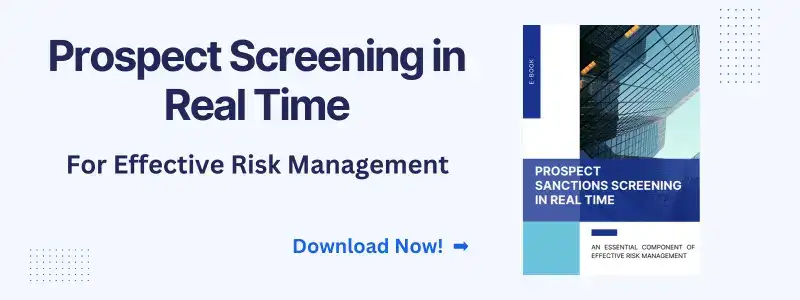Money laundering is a complex issue that affects various industries, including real estate. Criminals exploit the real estate market to legitimize their ill-gotten gains, making it challenging for authorities to track and prevent such illicit activities. In this article, we will delve into the mechanisms used by criminals to launder money through real estate, examine the red flags that can alert professionals to potential money laundering schemes, explore the impacts of money laundering on the real estate market, discuss strategies to detect real estate money laundering, and highlight the importance of safeguarding against these fraudulent practices. Additionally, we will touch upon the government regulations governing real estate companies and provide best practices for preventing money laundering in real estate transactions.

How do criminals launder money through Real Estate?
Criminals employ various methods to launder money through real estate, and it is essential to understand how these illicit activities transpire. One common technique is the use of shell companies, which are fictitious entities set up to conceal the true ownership and origin of funds. These shell companies often purchase properties, creating the appearance of legitimate transactions while effectively funneling illegal funds into the real estate market.
Another method involves the purchase of properties using illegitimate funds and subsequently inflating their value through fraudulent appraisals. This scheme enables criminals to increase the apparent value of their assets rapidly, making it easier to reintegrate the illicit funds into the legitimate economy.
Furthermore, criminals may exploit the global nature of real estate investments to launder money across borders. By purchasing properties in different countries with varying regulations and oversight, they can exploit gaps in the system to obscure the origin of their funds and create a complex web of transactions that is challenging for authorities to trace.
Additionally, some criminals engage in "flipping" schemes, where they rapidly buy and sell properties at inflated prices to generate large amounts of cash quickly. This strategy not only helps launder money but also contributes to artificially driving up property prices in certain markets, potentially leading to housing bubbles and destabilizing local economies.
Red Flags of Money Laundering through Real Estate
Professionals in the real estate industry must remain vigilant for potential indicators of money laundering schemes. Some red flags include cash purchases of high-value properties, especially by anonymous entities or individuals. Additionally, frequent transactions involving multiple properties or rapid flipping of properties can be indicative of money laundering.
Unusual financial transactions, such as the use of complex financial arrangements or the disclosure of false or inconsistent information, should also raise suspicions. Professionals should be cautious when dealing with clients who exhibit a disregard for normal transactional procedures or show reluctance to provide required documentation.
Another important red flag to watch out for is the involvement of third parties in real estate transactions. Money launderers often use third parties to obscure the true source of funds or ownership of properties. This can include shell companies, offshore entities, or individuals acting as proxies for the actual beneficiaries.
Furthermore, professionals should be wary of transactions involving properties located in high-risk jurisdictions known for weak anti-money laundering controls. These locations may provide opportunities for money launderers to hide illicit funds through real estate investments, making due diligence essential in such cases.
Impact of Money Laundering on the Real Estate market
Money laundering has far-reaching effects on the real estate market. Firstly, it distorts property prices, leading to inflated values and reducing housing affordability for ordinary individuals. This trend can undermine the stability of the market and perpetuate income inequality.
Moreover, money laundering erodes public trust in the real estate industry, tarnishing its reputation. The presence of illicit funds in the market can deter legitimate investors, hamper economic growth, and hinder the development of vibrant communities.
Furthermore, the intricate web of money laundering schemes often involves complex networks of shell companies and offshore accounts. These structures are designed to obfuscate the true origins of the funds, making it challenging for authorities to trace and combat illicit activities effectively. As a result, the real estate market becomes a breeding ground for illicit financial flows that can have destabilizing effects on the economy.
In addition, the influx of laundered money into the real estate market can have significant consequences for urban development and planning. In some cases, illicit funds may be funneled into high-end properties, leading to gentrification and pricing out long-time residents. This phenomenon not only distorts the social fabric of neighborhoods but also raises concerns about the ethical implications of profiting from illegal activities within the real estate sector.
How to detect Real Estate Money Laundering
Detecting real estate money laundering requires a proactive and multifaceted approach. Professionals need to implement robust anti-money laundering (AML) policies and procedures, which may include conducting thorough due diligence on clients and maintaining meticulous transaction records.
Collaboration with law enforcement and sharing information with regulatory bodies can also aid in identifying potential money laundering activities. The utilization of technology, such as artificial intelligence and data analytics, can enhance the detection capabilities of real estate professionals, enabling them to spot suspicious patterns and behaviors.
Moreover, staying informed about the latest trends and techniques used by money launderers is crucial in effectively detecting and preventing illicit activities in the real estate sector. By attending training sessions, workshops, and industry conferences focused on AML practices, professionals can stay ahead of evolving money laundering tactics.
Additionally, establishing a strong network within the real estate community and fostering relationships with other professionals in related fields, such as financial services and legal compliance, can provide valuable insights and collaboration opportunities in combating money laundering.
Safeguarding Against Money Laundering in Real Estate
To safeguard against money laundering in the real estate sector, it is essential for professionals to be well-informed about the prevailing AML regulations and best practices. Enhancing staff training on recognizing and reporting suspicious activities can help create a culture of compliance within organizations.
Engaging in ongoing monitoring and risk assessments of clients and transactions can also bolster defenses against money laundering. By adopting a risk-based approach, real estate professionals can allocate resources more effectively and focus on the highest-risk areas.
Furthermore, implementing robust customer due diligence (CDD) procedures is crucial in preventing money laundering in real estate transactions. This involves verifying the identity of clients, assessing their risk profile, and monitoring their transactions for any unusual or suspicious behavior. Conducting thorough background checks and ensuring the legitimacy of the funding sources can significantly reduce the risk of illicit funds being laundered through real estate.
In addition to internal controls, collaboration with regulatory authorities and law enforcement agencies is vital in combating money laundering in the real estate sector. Sharing information and intelligence with relevant authorities can help identify emerging trends and enhance the overall effectiveness of anti-money laundering efforts. Establishing strong partnerships with external stakeholders can strengthen the industry's resilience against illicit financial activities and promote a more transparent and secure real estate market.
Various Government Regulations for Real Estate Companies
Governments around the world have implemented regulations to combat money laundering in the real estate sector. These regulations aim to increase transparency, promote accountability, and deter illicit financial activities.
Some common regulatory measures include mandatory customer due diligence, reporting of suspicious transactions, and the establishment of regulatory bodies to oversee compliance. Real estate companies must familiarize themselves with the specific regulations in their jurisdiction and remain updated on any changes or additions.
In addition to anti-money laundering regulations, governments also impose zoning laws and building codes that real estate companies must adhere to. Zoning laws dictate how land can be used in different areas, such as residential, commercial, or industrial, to ensure proper urban planning and development. Violating zoning laws can result in fines, penalties, or even the demolition of non-compliant structures.
Furthermore, building codes set standards for the construction and maintenance of buildings to ensure the safety and well-being of occupants. These codes cover aspects such as structural integrity, fire safety, accessibility for people with disabilities, and energy efficiency. Real estate companies need to comply with these codes to obtain permits for construction and avoid legal consequences.
Best Practices for Preventing Money Laundering in Real Estate Transactions
To prevent money laundering in real estate transactions, industry professionals should adhere to best practices and adopt a risk-based approach. Conducting thorough due diligence on clients, verifying the source of funds, and maintaining accurate and complete records are fundamental steps.
Moreover, implementing internal controls, including independent audits and internal reporting mechanisms, can help ensure compliance with AML regulations. Collaboration with industry peers and participation in AML training programs and workshops can further strengthen anti-money laundering measures.
In addition to these measures, it is crucial for real estate professionals to stay updated on the latest trends and techniques used by money launderers. Criminals are constantly evolving their methods to evade detection, making it essential for industry players to be vigilant and proactive in their approach.
Furthermore, establishing strong relationships with financial institutions and law enforcement agencies can enhance the effectiveness of anti-money laundering efforts in real estate transactions. Sharing information and intelligence on suspicious activities can lead to quicker identification and prevention of money laundering schemes.
In conclusion, money laundering poses a significant threat to the integrity of the global financial system, with real estate being a favored avenue for criminals seeking to legitimize their illicit funds. By understanding the methods employed by money launderers, recognizing red flags, and implementing robust anti-money laundering practices, the real estate industry can contribute to collective efforts to combat financial crime and maintain the integrity of the market.
Advanced, proactive solutions are needed to stay ahead of sophisticated criminal tactics. Tookitaki's FinCense offers an innovative and comprehensive suite of tools designed to revolutionize anti-money laundering and fraud prevention efforts within your organization. By leveraging the power of federated learning and connecting to the AFC Ecosystem, FinCense ensures that your real estate transactions are not only compliant but also protected against the latest financial crime threats. With our Onboarding Suite, FRAML, Smart Screening, Customer Risk Scoring, Smart Alert Management, and Case Manager, you can enhance due diligence, streamline compliance processes, and foster a safer financial environment. Don't let money launderers undermine the integrity of your real estate transactions. Talk to our experts at Tookitaki today and fortify your defenses with FinCense.
Anti-Financial Crime Compliance with Tookitaki?




